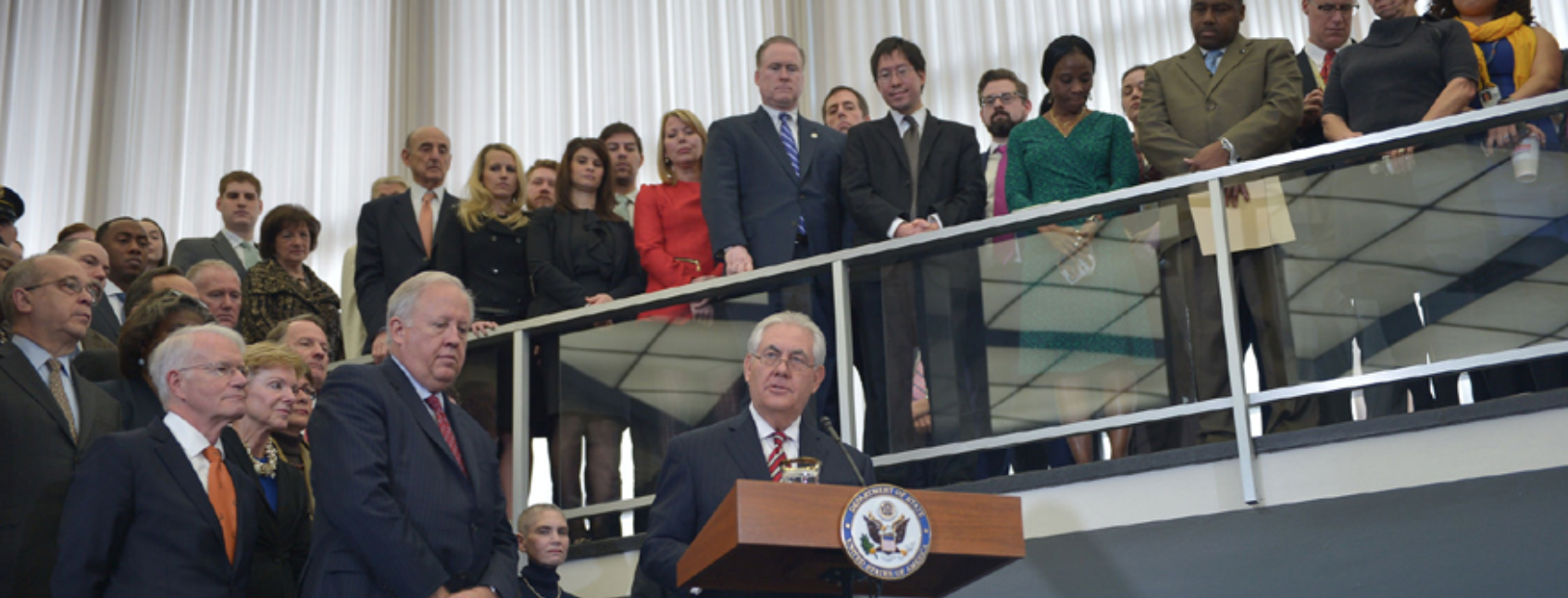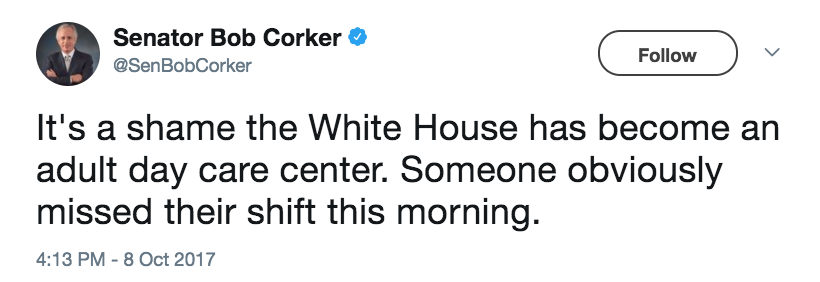Throwing H2O on the Pompeo to State Move
I could be totally wrong, but I don’t think the reported plan for Rex Tillerson to step down, to be replaced by Mike Pompeo, who in turn will be replaced by Tom Cotton (or maybe Admiral Robert Harward because Republicans can’t afford to defend an Arkansas Senate seat), will really happen.
The White House has developed a plan to force out Secretary of State Rex W. Tillerson, whose relationship with President Trump has been strained, and replace him with Mike Pompeo, the C.I.A. director, perhaps within the next several weeks, senior administration officials said on Thursday.
Mr. Pompeo would be replaced at the C.I.A. by Senator Tom Cotton, a Republican from Arkansas who has been a key ally of the president on national security matters, according to the White House plan. Mr. Cotton has signaled that he would accept the job if offered, said the officials, who insisted on anonymity to discuss sensitive deliberations before decisions are announced.
I say that for two reasons.
First, because of all the evidence that Mike Flynn is working on a plea deal. Particularly given that Mueller has decided he doesn’t need any more evidence of Flynn’s corrupt dealings with Turkey, I suspect his leverage over Flynn has gone well beyond just those crimes (which, in turn, is why I suspect Flynn has decided to flip).
I think that when the plea deal against Flynn is rolled out, it will be associated with some fairly alarming allegations against him and others, allegations that will dramatically change how willing Republicans are to run interference for Trump in Congress.
If I’m right about that, it will make it almost impossible for Pompeo to be confirmed as Secretary of State. Already, Senate Foreign Relations Committee Chair Bob Corker, who’d oversee the confirmation, is sending signals he’s not interested in seeing Pompeo replace Tillerson.
“I could barely pick Pompeo out of a lineup” Sen. Bob Corker (R-Tenn.), chairman of the Senate Foreign Relations Committee, said Thursday morning.
Already, Pompeo’s cheerleading of Wikileaks during the election should have been disqualifying for the position of CIA Director. That’s even more true now that Pompeo himself has deemed them a non-state hostile intelligence service.
Add in the fact that Pompeo met with Bill Binney to hear the skeptics’ version of the DNC hack, and the fact that Pompeo falsely suggested that the Intelligence Community had determined Russia hadn’t affected the election. Finally, add in the evidence that Pompeo has helped Trump obstruct the investigation and his role spying on CIA’s own investigation into it, and there’s just far too much smoke tying Pompeo to the Russian operation.
All that will become toxic once Mike Flynn’s plea deal is rolled out, I believe.
So between Corker and Marco Rubio, who both treat Russia’s hack of the election with real seriousness (remember, too, that Rubio himself was targeted), I don’t see how Pompeo could get out of the committee.
But there’s another reason I don’t think this will happen. I suspect it — like earlier threats to replace Jeff Sessions — is just an attempt to get Tillerson to hew the Administration line on policy. The NYT cites Tillerson’s difference of opinion on both North Korea and Iran.
Mr. Trump and Mr. Tillerson have been at odds over a host of major issues, including the Iran nuclear deal, the confrontation with North Korea and a clash between Arab allies. The secretary was reported to have privately called Mr. Trump a “moron” and the president publicly criticized Mr. Tillerson for “wasting his time” with a diplomatic outreach to North Korea
It’s Iran that’s the big issue, particularly as Jared frantically tries to finish his “peace” “plan” before he gets arrested himself. The fact that Trump has floated Cotton as Pompeo’s replacement is strong support for the notion that this is about forcing Tillerson to accept the Administration lies about Iran and the nuclear deal: because Cotton, more than anyone else, has been willing to lie to oppose the deal.
Trump is basically saying that unless Tillerson will adopt the lies the Administration needs to start a war with Iran, then he will be ousted.
But Tillerson’s claim that he doesn’t need to replace all the people who’ve left state because he thinks a lot of domestic issues will be solved soon seems to reflect that he’s parroting the Administration line now.
Obviously, there’s no telling what will happen, because Trump is completely unpredictable.
But he also likes to use threats to get people to comply.
Update: CNN now reporting I’m correct.





